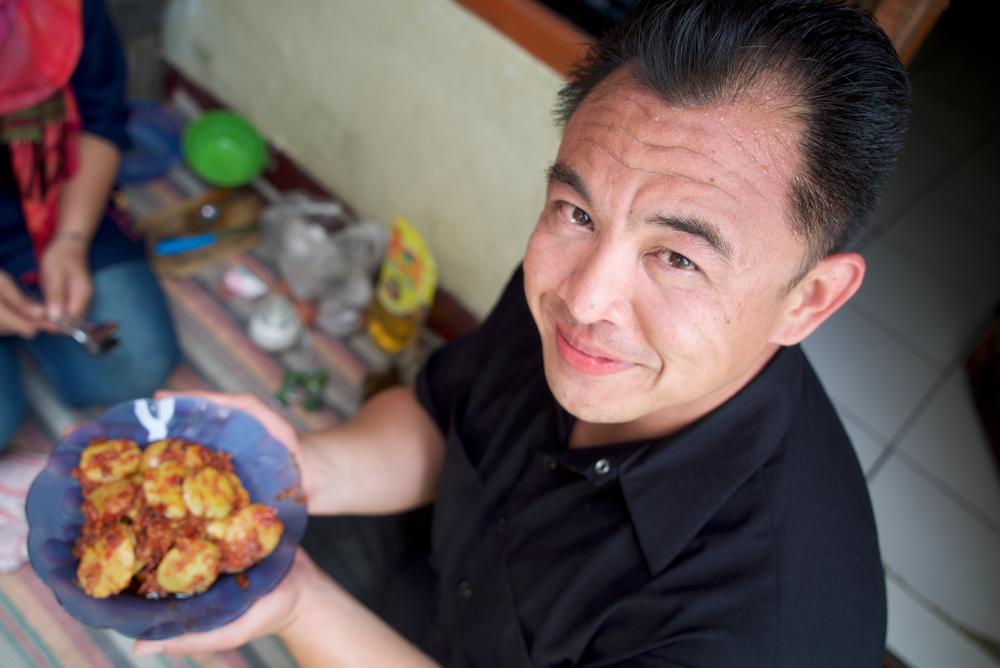IF YOU are a fan of Food Network’s Diners, Drive-Ins and Dives, you might recall seeing series host Guy Fieri visiting Filipino-American chef Johneric Concordia’s restaurant in Los Angeles called The Park’s Finest.
Concordia now appears in Discovery Channel’s original production Prison Food as the chef who goes behind bars into Iwahig Prison on Palawan Island in The Philippines, and Cipinang Prison in Jakarta, Indonesia, to show how inmates there cook and feed hundreds or thousands with a limited budget.
Born in the US to Filipino immigrant parents, Concordia grew up in a tough Los Angeles neighbourhood where crime was rampant and young people were killed on the street every day.
Though he never ended up behind bars himself, the chef and restauranteur knows first-hand what can push a person to commit a crime. These include poverty, violence and lack of opportunities in life.
During a recent tele-conference call, Concordia said he was approached by Asian filmmaker Aditya Thayi to do the documentary.
Apparently, Aditya had come to know about him, not through the Food Network feature, but because of an article about his community work and his background coming from a urban, violent environment in Los Angeles.
Concordia checked up on Aditya and found out that he was a renowned, award-winning filmmaker who had done a lot of work in the Middle East, so he agreed to hear him out.
The chef then decided to come onboard for Prison Food as he saw it as a chance to share something the majority of the world doesn’t know about, adding that “it was an opportunity to do something right and do a story about people who are incarcerated”.
He is well aware that he himself could have easily landed behind bars when he was much younger. He credited his parents and his community for keeping him out of trouble.
Describing why the documentary focused on the food angle, Concordia said: “Food is one of the few things that you must have on a daily basis. Food in these environments is one of the few things that can connect [the inmates] to the outside [world].
“Simple dishes can help bring back memories of when they were young and innocent, when they were with their families.”
Concordia said filming started in November 2017, and he went in as the new guy and tried to be helpful and not get in their way.
He just applied his technical skills to teach the ‘cook inmates’ on how to cut down prep time, so that food can be cooked and served on time.
He discovered that for these cooks, cooking for their fellow inmates was one of the things that made them feel good about themselves.
He said it is not easy to feed hundreds or thousands of inmates on a limited budget (which sometimes gets cut) but the way they manage it is a testament to their creativity.
When asked if he would hire an ex-convict to work in his restaurant, Concordia said without hesitation: “No problem.”
He said that when you run a small business, you always end up training your staff, but many of today’s young people lack a sense of responsibility and will skip work just to go for a concert.
“Those who have been institutionalised know their priorities. There is less bulls**t from them and they know how to get the job done.”
Prison Food was first screened at the Los Angeles Asian Pacific Film Festival in May 2018. Catch this documentary on Discovery Channel (Astro channel 551) tonight at 8.05pm.














